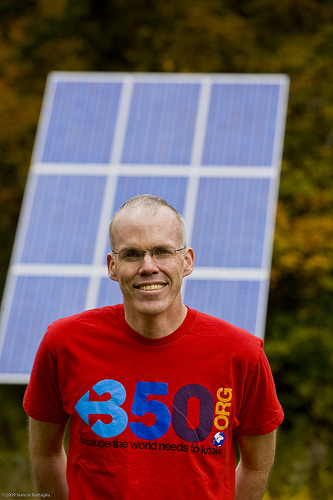Almost everyone cheers for the underdog, but why? Turns out it may be to maximize our pleasure and psychological gain when watching sports events.
All Articles
Beyond novelty, which is extrinsically valuable, lasting love must find ways to enjoy routine activities, which are intrinsically valuable.
The eternal quest for self knowledge has entered the realm of cold data collection: statistics to make our personal lives more calculable and efficient.
The New Yorker looks at the history of The Boston Tea Party and how the event has been appropriated by people of different political leanings ever since.
Of all old media platforms, TV has been the best at adapting to the Internet and still enjoys popularity while the CD, the newspaper, and possibly the book, are in decline.
In an interview with The Nation, historian Tony Judt says consciously choosing to build a social democratic state is an expression of our freedom, not a limit on it.
Athletics isn’t all brawn: the professional athlete’s brain has been trained to be more efficient enabling them to make quick decisions in a rapidly changing environment.
“I am an optimist,” Brazilian-born artist Romero Britto writes in the introduction to his new book Happy! “I know that isn’t a common trait to have these days, but I […]
Last night, among the eerie nighttime mummies and cave-drawings, a who’s who environmental panel convened at the New York’s Metropolitan Museum of Art to discuss how to “move the conversation […]
The distances separating the stars are so vast that it would take a very advanced civilization—perhaps thousands or even millions of years more advanced than ours—to bridge those distances. In […]
Matt Yglesias makes a good point. The Tea Party activists talk a lot about the government taking away their freedom, whether by taxing them, byforcing them to buy health insurance, […]
Empathy is a complicated emotion, even for mice. On seeing another in pain, a mouse will act as if it itself is also hurting—much more, though, if it knows the […]
What kinds of incentives are necessary to get people to lead more environmentally responsible lives? Ernst Weizsäcker, co-chair of the U.N. International Panel for Sustainable Resource Management, says that we […]
The first project Brian Henson worked on with his father, Muppets creator Jim Henson, was a scene in “The Great Muppet Caper” where Kermit and Miss Piggy are riding bicycles […]
In order for Lyme disease to properly proliferate in an area, to the point that you have to check every square inch of your body for ticks when you get […]
Today I respond to Francis’ most recent post: an objection to the L.A. Times’ use of e-commerce links in its online edition to generate ad revenue. In this case, I […]
Canadians live not only longer, but healthier lives than their American counterparts, according to a study in the latest issue of the peer-reviewed journal Population Health Metrics. Canadians and Americans […]
What is the future role of the world’s great libraries, and librarians? Harvard Magazine considers what will become of one University’s vast collections in the age of digitization, and finds […]
“To achieve deep focus nowadays is also to have struck a blow against the dissipation of self; it is to have strengthened one’s essential position,” writes Sven Birkerts.
Plenty of people on Wall Street knew that a crash was coming—and that they responded by grabbing all the profit they could, writes Christopher Hayes. He thinks they should face criminal sanctions.
“Arctic amplification” refers to the fact that the region is warming twice as quickly as the rest of the planet—and as ice warms, exposing more ocean water, the process naturally speeds up.
There is no single part of the human brain that gives it advanced language capabilities. Rather, humans rely on multiple parts of the brain to extract meaning from sentences.
Some believe we should move a system where health insurers pay a fixed, up-front cost for each particular health problem—and let the hospital and caregivers use the money as they see fit.
“The May 1 riots in Berlin’s Kreuzberg district have become an annual ritual. … Now an American anti-capitalist activist has started giving tours of the neighborhood’s hot spots to foreign visitors.”
“The term ‘slow travel’ is tied to a burgeoning movement to return to a time when life’s pleasures were savored, to a time when people appreciated the going as much as the getting there,” writes Nancy Keates.
“What’s the difference between a frog, a chicken, a mouse and a human? Not as much as you’d think, according to an analysis of the first sequenced amphibian genome.”
La Santa Muerte, Holy Death, “is only one among several otherworldly figures Mexicans have been turning to as their country has been overwhelmed by every possible difficulty.”
Paul Krugman writes that the Greek crisis demonstrates the dangers of nations putting themselves in a “policy straitjacket.”
On Monday, Republicans voted to prevent financial reform legislation from moving to the Senate floor for debate. The Democrats’ motion to bring about cloture—which would end the Republicans filibuster of […]
Around the turn of the 20th century, if you were in the upper class in America, you’d have probably, at some point, sat down to a nice dinner of Diamond […]











